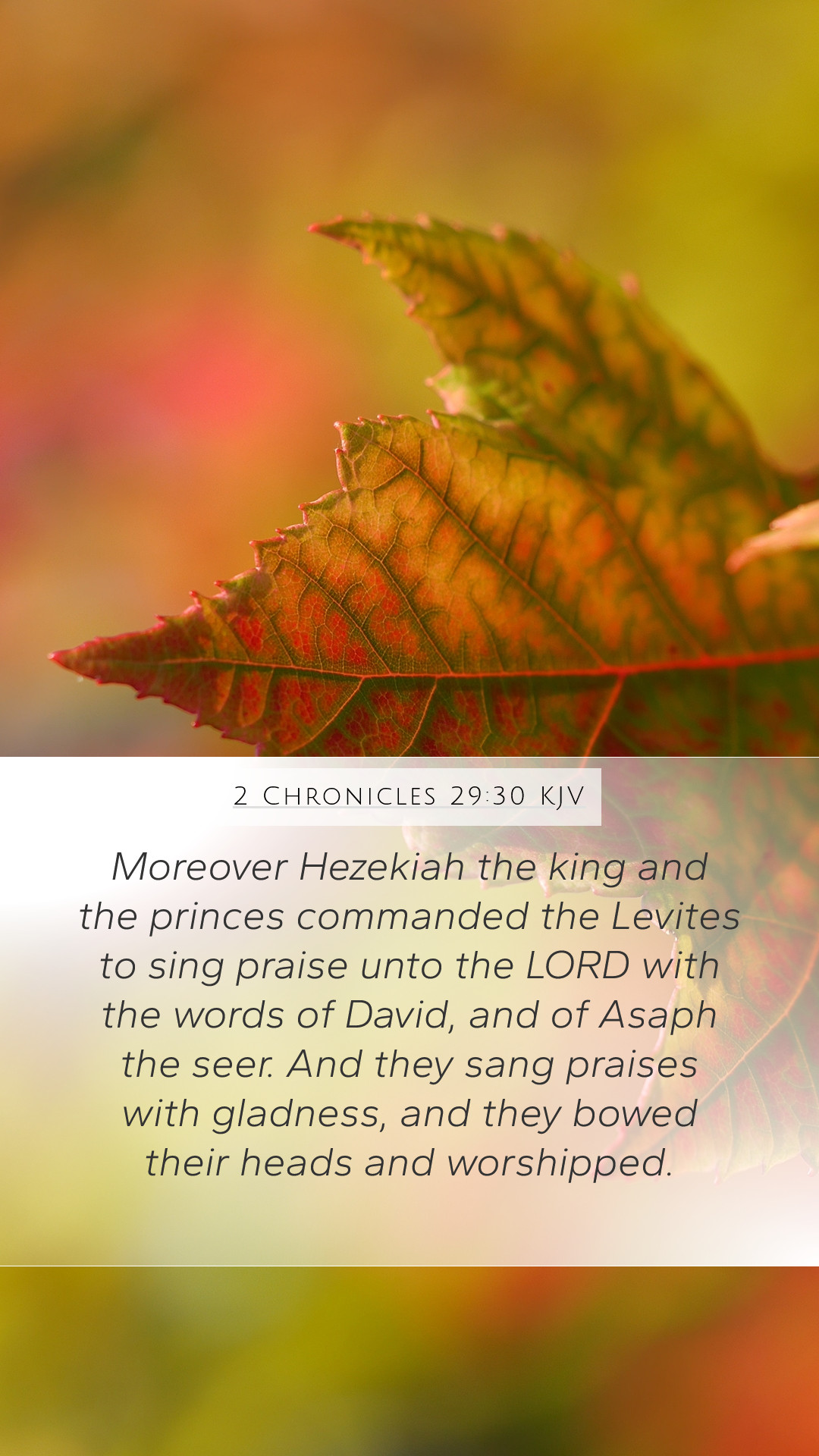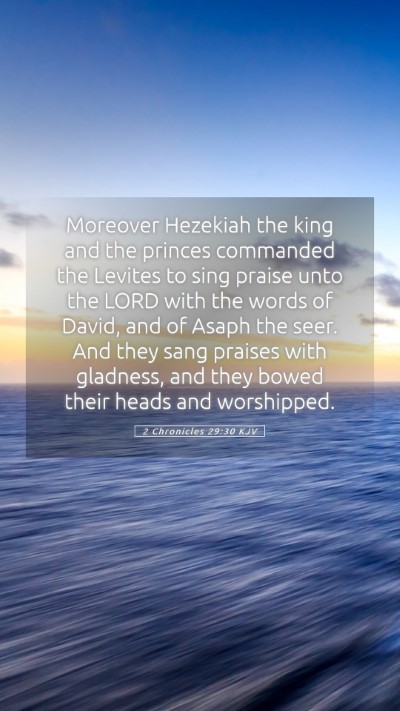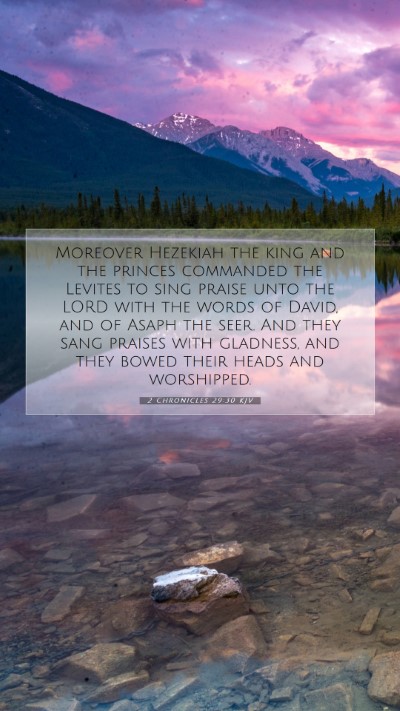Understanding 2 Chronicles 29:30
2 Chronicles 29:30 states: "Moreover, King Hezekiah and the princes commanded the Levites to sing praise unto the Lord with the words of David, and of Asaph the seer. And they sang praises with gladness, and they bowed their heads and worshipped."
Bible Verse Meaning
This verse highlights a significant moment in King Hezekiah's reign, emphasizing the importance of worship and music in the life of Israel. The command to the Levites underscores the role of music in expressing devotion and thanksgiving to God.
Bible Verse Interpretations
The individuals involved in this verse—King Hezekiah and the Levites—demonstrate leadership in worship. Hezekiah's initiative signifies a return to proper worship practices after a period of neglect, indicating the reform he initiated to restore true worship in Judah.
Bible Verse Explanations
The act of singing praises with gladness reveals the joy that accompanies true worship. Hezekiah’s reforms encouraged a heartfelt connection with God, moving from ritualistic practices to genuine worship characterized by joy and reverence.
Bible Verse Commentary
According to Matthew Henry, this verse illustrates the significance of congregational singing in worship, emphasizing that music should lead the congregation into a deeper engagement with God. It's not just an act but a heartfelt expression of devotion.
Albert Barnes points out that the references to David and Asaph highlight the longstanding traditions of worship within Israel and that these practices were integral to the identity of the Jewish people.
Adam Clarke adds that the Levites were instrumental in fostering a spirit of worship among the people, reminding us that worship is not just an individual act but a communal experience that binds the community together.
Scripture Analysis
The historical context of this verse reveals that Hezekiah was restoring the temple worship that had been neglected. This act was not merely organizational; it was a spiritual revitalization in the nation of Judah.
Understanding the role of music in worship practices provides deep Bible study insights into how congregations can foster a worship environment that honors God.
Application of the Verse
This verse encourages believers today to engage in worship with joy and sincerity. It illustrates that music can be a powerful tool in the life of the church to express faith and unity among believers.
Embracing the joy of worship as depicted in this verse can be applied in various contexts, whether in a church setting or personal devotion.
Cross References
- 1 Chronicles 16:7-36 - The establishment of thanksgiving and praise for God's goodness.
- Psalms 95:1-3 - A call to worship with joy and singing.
- 2 Chronicles 5:13-14 - The power of musicians in invoking God's presence during worship.
- Isaiah 38:20 - Hezekiah’s role in praising God for deliverance.
- Psalms 100:1-4 - An invitation to worship and praise with gladness.
Conclusion
Understanding 2 Chronicles 29:30 provides rich insights into the significance of worship in biblical times, serving as a model for contemporary churches and individuals seeking to deepen their spiritual practices. This verse illustrates that worship should be joyful, participatory, and centered around glorifying God, an essential aspect of both private devotion and corporate gatherings.


